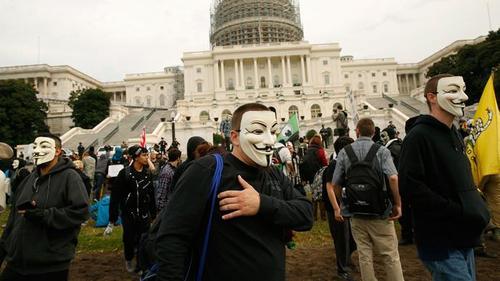
By Yaël Ossowski / Watchdog.org / February 23, 2015
Whether the public knows it or not, the Internet is set to face its biggest transformation yet when the Federal Communications Commission
meets in Washington, D.C. on Thursday.
It’s at this meeting of the commissioners,
cloaked in bureaucratic mystique, that FCC chairman Tom Wheeler is
expected to present the Title II classification of Internet service
providers. That means companies offering Internet services would be
regarded — and regulated — the same as those offering telephone
services.
It will give the FCC an incredible amount of power in crafting rules
to guarantee certain “marketplace behavior in a way that protects
consumers,” wrote Wheeler in a Wired article detailing the plan this month.
The plan has been heralded as net neutrality to keep the Internet “open, fair and free”
by proponents, and derided as the first harmful step in regulating the
most creative and potent technology of our age by opponents.
Is it a measure of fairness, keeping big Internet companies from
dictating what we see online? Is it about keeping the Internet free and
open?
At least the public doesn’t seem to think so.
“The public neither understands nor supports the FCC voting on net
neutrality rules without greater disclosure of the exact wording and the
details of the proposal,” said Peter Hart, founder of Hart Research
Associates.
Partnering with the Progressive Policy Institute, a self-titled “New Democratic” think thank, Hart conducted a detailed survey Friday that reveals the extent to which the majority of Americans are opposed to the idea of regulating the Internet.
“Net neutrality is near net zero understanding: just one in four
Americans knows what the term refers to, and just one in 10 Americans
has positive feelings about it,” said Hart in a press release accompanying the results.
According to the survey, 56 percent of Americans say the government
shouldn’t take a stronger and more active role in overseeing and
regulating the Internet. That’s compounded by the nearly three-fourths
of respondents who say they’re not even familiar with the idea of net
neutrality.
That’s surely a blow to the active online campaigns highlighting the issue, funded in large part by the Ford Foundation and many other progressive organizations who regularly champion net freedom.
“These findings suggest that the FCC’s bid to impose outdated
telephone regulations on the Internet is driven more by professional
activists than by the public, which seems instinctively to resist the
idea,” said Will Marshall, president of PPI. “That’s why Congress should
take a closer look at what the FCC is up to and make sure these issues
get a thorough public airing.”
It was conducted Feb. 13-15 by telephone survey with 800 U.S. adults and has a margin of error of 3.46 percent.
This latest poll paints a different picture than a more cited survey
from last November, conducted by the University of Delaware’s Center
for Political Communication, often trumpeted by proponents.
It found that 81 percent of Americans oppose “allowing Internet
service providers to charge some websites or streaming video services
extra for faster speeds,” drawing attention to the uniform answers of
both Republicans and Democrats.
It was conducted Oct. 21-26, 2014, from a pool of 900 U.S. residents and has a margin of error of 3.2 percent.
The intended result is obvious from the wording, even as proponents pointed to Republican support of the plan as a “bipartisan consensus.”
As usual, it comes down to semantics and framing. The public is
generally against the idea of government regulation of the Internet and
similarly against large ISPs charging prices for premium access, a gap
of information exploited by both sides in the debate.
Whether the most recent survey reveals a definite public shift
against net neutrality and Internet regulation is up for interpretation,
but it didn’t stop detractors of the plan from using the results to
make their case.
“President Obama’s 332-page plan to regulate the Internet has
awakened a sleeping giant,” said FCC commissioner Ajit Pai in reaction
to the survey. He’s made his name likening the plan to Obama’s pet project to control Americans’ online behavior.
“Over the last two weeks, it has become clear that the American
people want the federal government to keep its hands off of the
Internet. Unfortunately, the FCC has steadfastly refused to inform the
public because it knows that the more the American people find out about
President Obama’s plan, the less they like it,” said Pai in a statement on the FCC’s website.
Regardless of the debate spearheaded by “professional activists,”
Americans will bear the brunt of the decision to come Thursday, when the
FCC considers the plan and likely adopts it among partisan lines.
Leave a Reply
You must be logged in to post a comment.